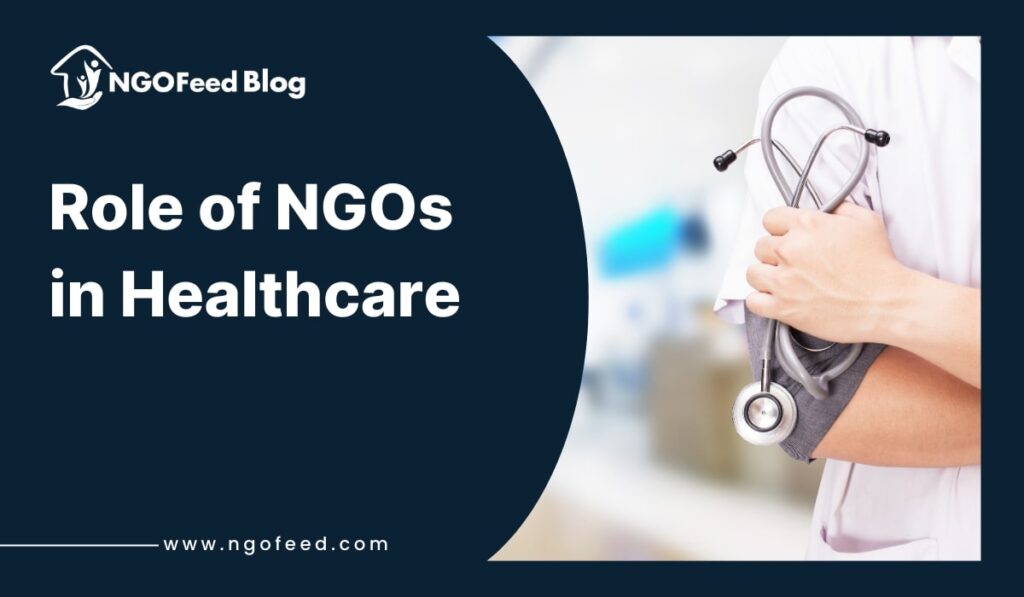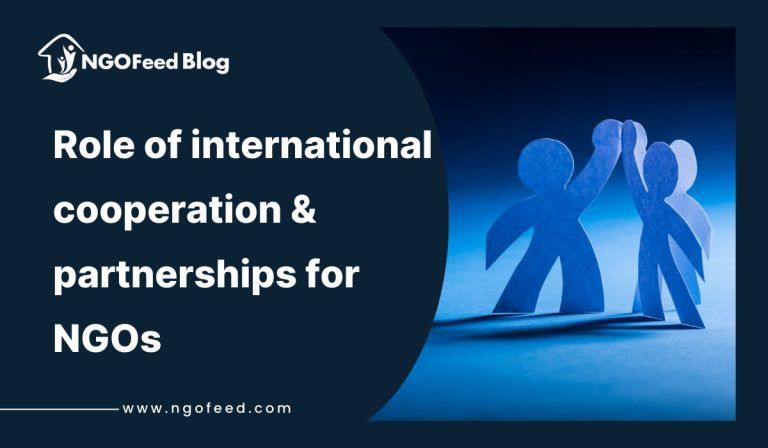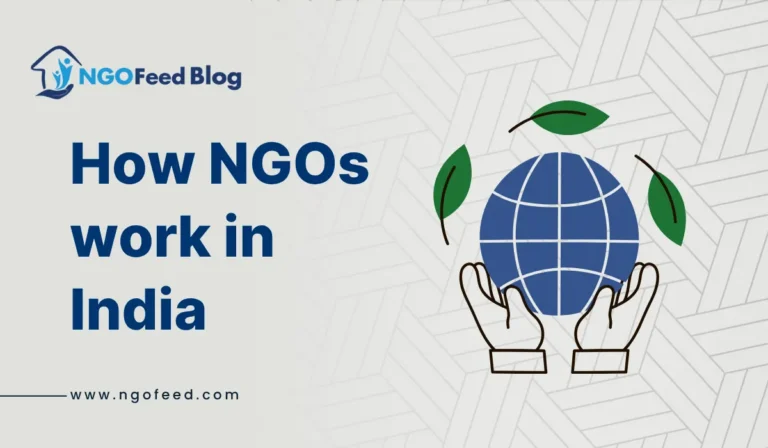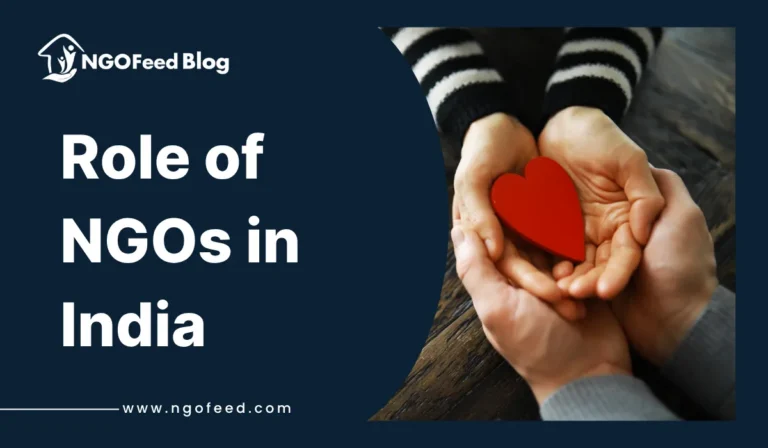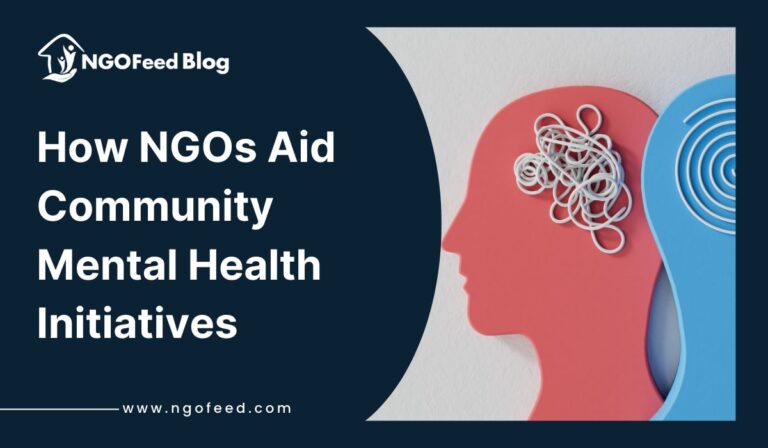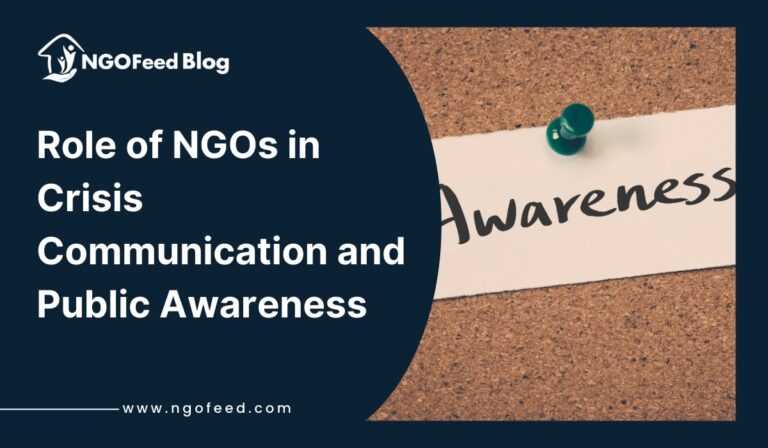Role of NGOs in Healthcare: Health was earlier said to be the ability of the body to function well. However, as time passed, the definition of health also evolved. It cannot be stressed enough that health is the primary thing after which everything else follows. When you maintain good health, everything else falls into place.
Access to healthcare is shaped by social, economic, and policy factors that affect individuals and communities differently. Financial constraints, geographical challenges, sociocultural norms, and personal limitations can restrict timely access to medical services.
Financial hurdles such as lack of insurance, travel costs, and unpaid time off from work often make healthcare unaffordable. Geographic distance, especially in rural areas, adds to the challenge.
Additionally, cultural beliefs and limited health literacy can prevent effective communication with healthcare providers. These limitations can lead to reduced service use, less effective treatments, and poorer health outcomes, emphasising the need for a more inclusive and accessible healthcare system.
Table of Contents
Factors for Good Health
Good health depends on a wide range of factors.
Genetic factors
A person is born with a variety of genes. In some people, an unusual genetic pattern or change can lead to a less-than-optimum level of health. People may inherit genes from their parents that increase their risk for certain health conditions.
Also Read: Role of UNHRC in Safeguarding Human Rights
Environmental factors
Environmental factors play a role in health. Sometimes, the environment alone is enough to impact health. Other times, an environmental trigger can cause illness in a person who has an increased genetic risk of a particular disease.
Access to healthcare plays a role, but the WHO suggest that the following factors may have a more significant impact on health than this:
- where a person lives
- the state of the surrounding environment
- genetics
- their income
- their level of education
Why Is It Important To Take Care of Your Health?
There are several reasons why taking care of your body is good for your mental health:
- Health problems affect functioning: Health problems, even minor ones, can interfere with or even overshadow other aspects of your life. Even relatively minor health issues such as aches, pains, lethargy, and indigestion take a toll on your happiness and stress levels.
- Poor health habits can add stress to your life: They also play a role in how well you are able to cope with stress. The stress that comes from poor health is significant.
- Poor health interferes with daily living: Health challenges also affect other areas of your life. Health problems can make daily tasks more challenging, create financial stress, and even jeopardise your ability to earn a living.
- Stress can worsen health: Stress itself can exacerbate health issues from the common cold to more serious conditions and diseases, so maintaining healthy habits can pay off in the long run. This article looks at some healthy habits that have a positive impact on your life.
Also Read: Role of NGOs in Mental Health
How Does the Government Play an Important Role In Improving Healthcare?
Governments play a crucial role in disease prevention and control, from vaccination programs to the management of outbreaks. Public health agencies like the Centers for Disease Control and Prevention (CDC) in the U.S. and the World Health Organization (WHO) globally work tirelessly to monitor, prevent, and respond to health threats. These organisations rely on government funding and support to conduct research, develop vaccines, and implement public health campaigns.
The eradication of smallpox and the near-eradication of polio are prime examples of successful government-led public health initiatives. These achievements were possible due to coordinated global efforts, substantial funding, and widespread vaccination campaigns—demonstrating the effectiveness of government intervention in controlling infectious diseases.
Also Read: Role of WHO in Healthcare
Roles Of NGOs in Healthcare
The roles of NGOs in global health and strengthening health systems include: working in partnership with Ministries of Health (MoH); managing joint projects and programs; piloting innovative service delivery approaches; involving communities; developing human resources, and strengthening infrastructure and information systems
Impact Created
To ensure service coverage, NGOs provided adequate and competent human resources, necessary health equipment and facilities, and provided public health and health care services strategies. To achieve population coverage, they provided services to vulnerable groups through community participation.
Most studies were conducted in middle-income countries. Overall, the quality of the reported evidence was good. The main funding sources of NGOs were self-financing and grants from the government, international organisations, and donors.
NGOs in India Working To Improve Healthcare
Doctors for You (DFY)
It was founded in 2007 by doctors, medical students and like-minded people with a vision of “health for all”. Currently, DFY is working on various projects in 17 different states across India involving healthcare professionals, disaster management practitioners, social workers, etc. It reaches out to segments affected by extreme poverty, disasters, neglect and years of injustice.
Also Read: Role of NGOs in Cancer Care
Rural Health Care Foundation (RHCF)
It has been working for healthcare since 2009 and provides high-quality and affordable primary medical care to low-income and underprivileged groups in West Bengal. Their aim is to make healthcare accessible to the poorest and the most deprived sections.
RHCF has 17 centres operating across the state which include 12 centres in remote rural areas. Their goal is to continue improving the health and lives of the underserved who face social and financial challenges.
Swasth foundation
Established in 2009 with the vision of ‘Health and Joy for All’, Swasth is on a mission to build a sustainable and accountable health ecosystem. The organisation’s network of primary healthcare centres provides affordable services to reduce out-of-pocket expenditure by over 50% for those in need.
International Organisations
The EU cooperates with international organisations to develop, implement, and promote its public health agenda. Specific cooperation arrangements exist with:
- The World Health Organisation (WHO)
- The Council of Europe
- The Organisation for Economic Cooperation and Development (OECD)
Also Read: Role of NGOs in HIV and AIDS Awareness and Prevention
Conclusion
In conclusion, local NGOs play a critical role in strengthening humanitarian response networks and delivering aid and support to disaster-affected communities. Their unique understanding of the local context and their ability to work closely with local communities make them essential actors in humanitarian response efforts.
However, local NGOs face numerous challenges, including limited resources, political and social barriers, and limited recognition and legitimacy.

